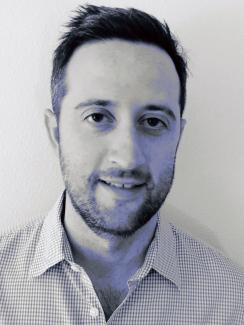
How the World Became Rich: The Historical Origins of Economic Growth, Feb. 19

The Menard Family George Washington Forum will host Dr. Jared Rubin discussing "How the World Became Rich: The Historical Origins of Economic Growth" on Feb. 19 at 6 p.m. in the Walter Hall Rotunda.
Rubin is an economic historian interested in the political and religious economies of the Middle East and Western Europe. His research focuses on historical relationships between political and religious institutions and their role in economic development. His book, “Rulers, Religion, and Riches: Why the West Got Rich and the Middle East Did Not” (Cambridge University Press, 2017) explores the role that Islam and Christianity played in the long run “reversal of fortunes” between the economies of the Middle East and Western Europe. The book won the Douglass North Best Book Award for the best research in institutional and organizational economics published during the previous two years, awarded by the Society of Institutional and Organizational Economics.

“Professor Rubin is an accomplished scholar, and his visit will appeal to a broad audience including economics, history, political science, sociology, religious studies, and philosophy,” said Dr. Cortney Rodet, Director of the George Washington Forum. “His latest book is a tremendous contribution to economic history and a vital source to both experts and novices who want a concise but deep treatment of global economic history. It covers well the Industrial Revolution and its contribution to economic progress, but it also dives into cultural, religious, political, moral, and philosophical explanations. Prof. Rubin and his coauthor recognize the complexity of economic progress and admit there is no single best explanation of why the world is rich today.”
Rubin’s work has appeared in journals such as Review of Economic Studies, Review of Economics & Statistics, Economic Journal, Management Science, and many others. He is the Co-Director of Chapman University’s Institute for the Study of Religion, Economics and Society (IRES) and the President of the Association for the Study of Religion, Economics, and Culture (ASREC). He serves on the editorial boards of Journal of Economic History, Journal of Comparative Economics, Explorations in Economic History and Essays in Economic and Business History. He has been awarded over $1M in grants from the John Templeton Foundation for his work in the economics of religion. He graduated with a Ph.D. in economics from Stanford University in 2007 and a B.A. from the University of Virginia in 2002.
“One of the most refreshing takes from Prof. Rubin’s research is that it recognizes tradeoffs to different conventions while recognizing non-traditional goods and the transcendental as valuable and potentially worthy of sacrificing material wealth,” Rodet said. “We invite the entire OHIO community to the Walter Hall Rotunda for a great event.”
